Think about it: in a normal year – where you do not have to invest in a new car (because the old one has conked out) or a new home – the most expensive item you are likely to spend on is a family holiday.
Why do Holidays Matter to You?
We may not think of it that way, but the amount we spend for our holidays is roughly up there with the annual family budgets for transport and food, second only to housing. This appears to indicate that holidays respond to a real need, not something we could switch on or off at will. No: we are talking about something basic and fundamental, not substantially different from our need for food and shelter.
But what is this “fundamental need”?
If you ask the holiday makers themselves, many or even most would probably insist that the one thing they really want to do during their holidays is to relax. I have always found this more than slightly disingenuous. Why do these people not simply lie on their beds in a near-catatonic state for a fortnight? This will surely be the most relaxing thing they will ever have done. But will it also be their best ever holiday?
If we cannot trust holiday makers to tell us why, we must approach it from a different, more objective angle. History, for example. When were annual holidays invented? In their present form, after WWII, no doubt, although you can certainly trace their ancestry back to the working class seaside outings in the 19th century. Clearly, annual holidays have something to do with modern life and the industrial revolution.
Before that, even people who had the means and the time would not have dreamt of doing such a thing. Aristocrats went to town for the winter, once the harvest was completed, to renew business acquaintances and political alliances or to marry off their daughters.
The Grand Tour was something they undertook once in a lifetime to shape and inform their outlook on life. Apart from that, they saw no need to take a break from being what they did throughout the year: being an aristocrat. The entire notion would have appeared preposterous to them, odd at the very least, perhaps even downright scandalous.
Even today, not everybody takes a holiday. While we find nothing curious about a bus driver who enrolls in a summer painting class in Provence, the opposite notion of a professional artist who spends his summer learning how to drive a bus in Philadelphia or Barnsley would strike us as more than faintly eccentric. Clearly, we feel that some people need a break more than others.
Is that all holidays are for, a break from tiresome routines? I think it goes much deeper than that.
Why do holidays matter?
A long time ago, we were what we did. The industrial revolution, however, changed that forever. While it is possible to derive some pride from being a farmer, a carpenter or a blacksmith, performing a useful service to a small community, it is impossible to feel the same way about being the guy who punches holes into large sheets of metal.
Economists call it “alienation”, and it would be wrong to assume it had disappeared in the modern workplace. While most of us are glad, and rightly so, that we do not have to work in a 19th century factory environment, modern manufacturing or office work is – in this respect – not substantially different.
Most of us accept that as the price of progress. Few would exchange their warm and comfortable homes (built by and made possible through alienated labour) with the draughty 12th century hovel of a carpenter. Still, that carpenter had one over us: he knew what he represented, where he stood, who he was.
We, conversely, do not. All we know is who we are not: We are not that factory worker, not that office drone. We do their jobs, but there is more to us than that. Much more.
Our real selves reside somewhere else in our lives. And where do they reside? In our holidays, that’s where, and that’s why our holidays are so precious to us.
Holidays are the space in our lives where we can be ourselves, the space where all those forces that produce alienation for the remaining 50 weeks of the year are suspended.
Holidays are the time when we create the selves we return to, as a source of solace and strength, during those gloomy November afternoons: when we hammer bolts into some piece of machinery we only half understand or brood over some sales report in our office, the daylight slowly fading out of our working lives, one day at a time, until Christmas, after which we face another long slog through the sleet and snow of the winter months until next summer.
Our holiday selves allow us to do all that in the knowledge that we are not really this factory worker or office drone but – well, whoever we were in our last holidays: the gentleman connoisseur who enjoys his post-prandial glass of sweet wine by the seaside, the art lover who takes in some museum or the other, the man of the world who blends in effortlessly with the diners in a high-priced eatery in Manhattan or Paris.
Whether we would, if we could, really be that person 24/7 is not the point. This is not an identity to be lived. Holidays are the stage on which we portray our better selves.
And that is why holidays matter. Since we are, up to a point, what we tell ourselves about ourselves, it is important what we tell ourselves about ourselves.
Think about that before you book that all-inclusive tropical resort greed fest (in a country about which you know little and care less) – or before you spend your hard-earned cash for the privilege of crawling around some Costa-something-or-the-other beach anthill.
Join us in discussions on topics we write about related to easy hiking. Follow us on Facebook or register to get our free updates directly in your email box

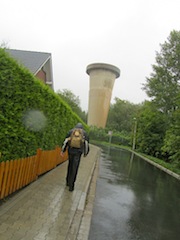
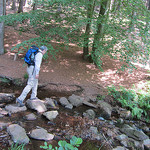
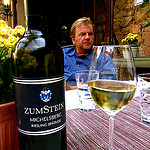
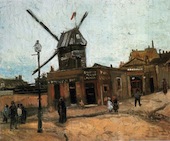
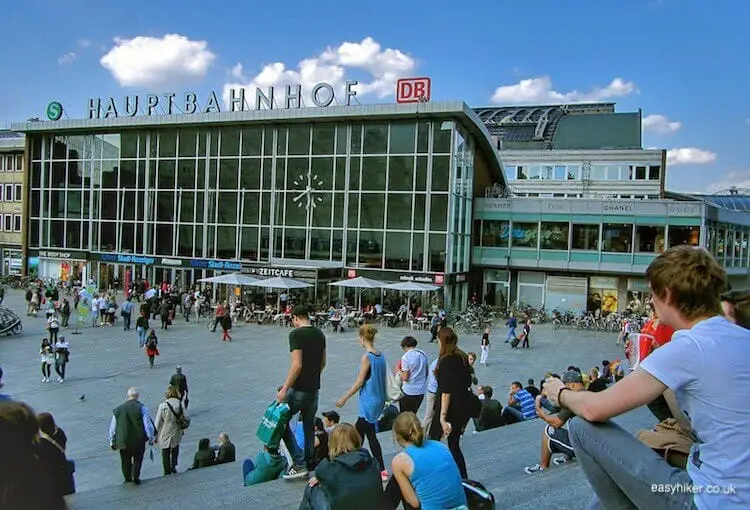
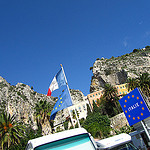
Great wording. I also love taking a break specially holidays catching up with my family.
Thanks for your reply, John. I quite liked the Runcie quote. That reminded me of another quote (I forgot who said it) that goes something like this: We naturally assume that, when religion disappears out of people’s lives, reason will fill this void. Instead (the quote goes on), it appears it may be the complete opposite. (I paraphrase, heavily. When a good memory disappears out of people’s lives, it is often informed guesswork that fills the void.)
Many people nowadays have got their lives upside down, spending their time chasing dreams that have been manufactured by the advertising industry. But luckily this is still a free world, and we don’t have to follow them.
Came across this through your 7 links post. The psychology of travel is something that is occupying my mind at present. I read too many travel blog posts and many of those taking the “digital nomad” route to happiness claim “that they are not cut out for the cubicle life”.
As this post states clearly, holidays / vacations are times when we live life to our agenda for a couple of weeks. Is it a surprise that we suddenly feel alive when this happens. You are correct alienation is certainly a problem.
I feel that there is much more to it though. Yes, we were what we did at one time. Now we are what we have. All those hours punching holes in metal or similar soul destroying work is tolerated to buy the next “must have” gadget which is obsolete within weeks. But even travel, is now a major consumer product.
One aspect you miss in your analysis is the activity that lead to Brits calling their vacations holidays. To quote Robert Runcie a former Archbishop of Canterbury “In the middle ages people were tourists because of their religion, whereas now they are tourists because tourism is their religion.” Certainly when you see the quest for even more luxury, or out of the way places, it is not surprising that Antarctica has now become “the” place to go for a cruise. This is nothing more than travel consumerism.
Personally, I think many of the digital nomads have actually gone on pilgrimage without them realising it. I firmly believe that the biggest discoveries we make in our travels are within ourselves. When we gain control of our lives for two weeks or many years, it is then we find out who we really are.
Travel is not the answer in itself, but it does alleviate the symptoms of our alienation. It is the cure we need, not something to suppress the symptoms. I feel we need to move from Avoir to Etre. In fact one of the first things many digital nomads do when they start their adventure is to sell their material possessions and in doing so feel liberated. The clues are all there for anyone searching for themselves.
I have to agree with you on this one. I don’t think we are who we truly are when we work but we get that chance when we go on vacation. If we take that time to just sit, relax, and do nothing, I think we waste the opportunity to become more of who we are.
Thanks for dropping by, Tracy. We are all struggling to get by. Best wishes on your journey.
well said. i’ve been struggling with my own sense of self-ness (if you will) lately, and i’m a teacher. i can’t make that be all that i am–just a teacher. and yes, i travel a lot. clearly, you’re on to something.